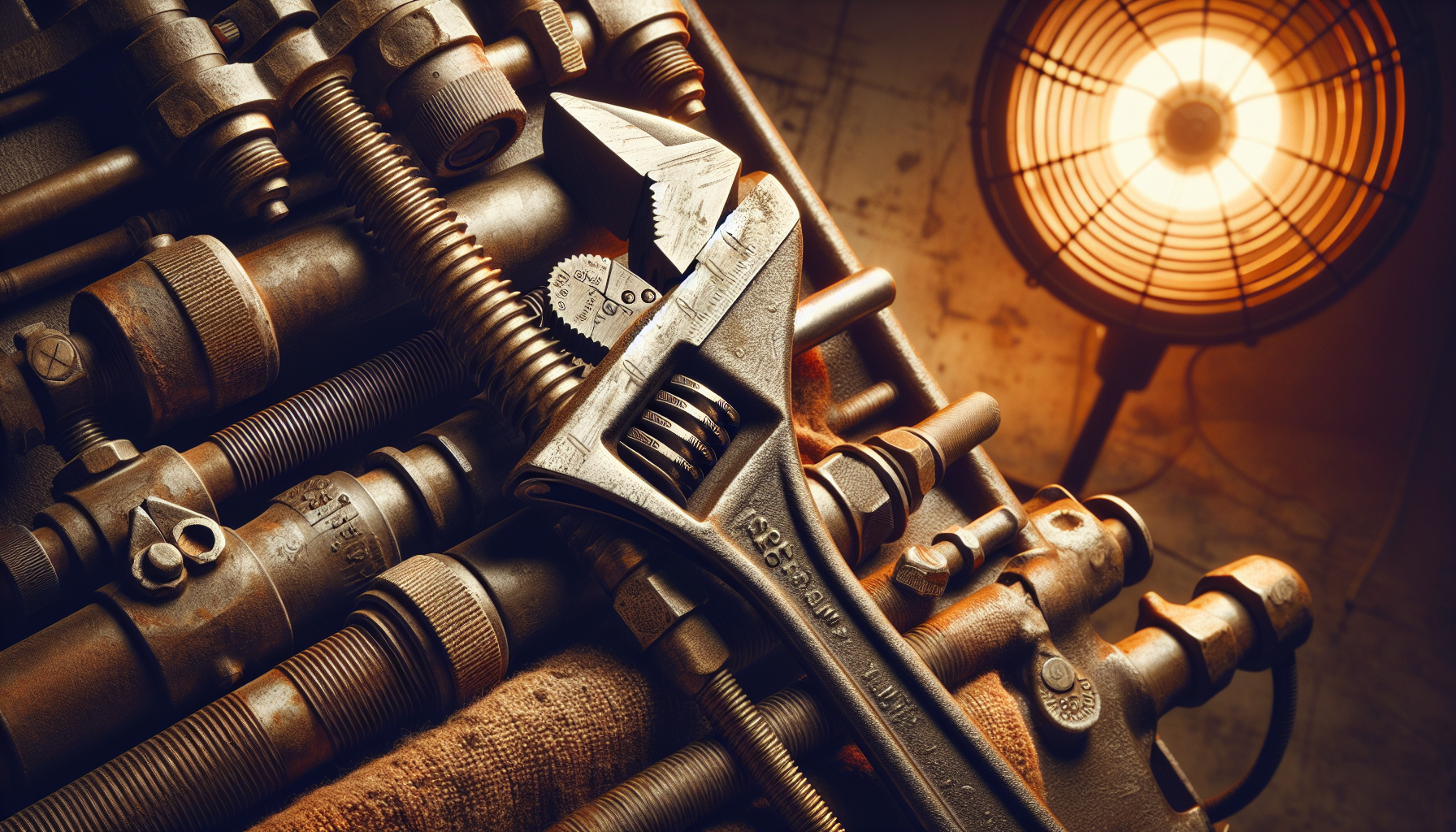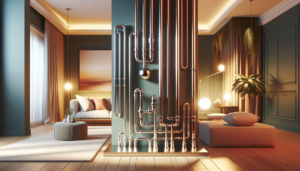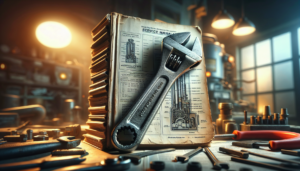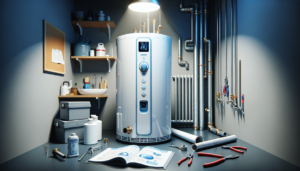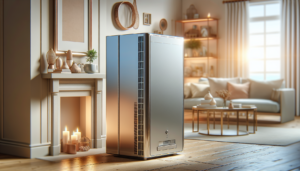Have you ever noticed how chilly it can get when the heater isn’t working? Feeling cold in your home can be uncomfortable and frustrating. If you live near Pace, Florida, knowing about heating repair is important. Let’s talk about the town of Pace and how it relates to heating repairs.
Table of Contents
ToggleWhat is Pace, Florida?
Pace is a lovely suburban area located in Santa Rosa County. It is just north of Pensacola and has become a popular place for families and individuals looking for a quiet, friendly environment. The area is filled with parks, schools, and shopping centers, making it a great place to live.
Pace enjoys a warm Florida climate most of the year. However, even in Florida, there are days when you need to turn on the heater. For example, during the winter months, it can get chilly at night. This is when proper heating becomes important. After all, you want to stay warm and cozy in your home, especially when temperatures drop.
Why Is Heating Repair Important?
When your heating system isn’t working, it can lead to cold rooms. This makes daily life uncomfortable. Just think about how nice it is to come home after a long day and relax in a warm space. But what happens when that space isn’t warm anymore? The need for heating repairs arises.
A good heating system keeps your home comfortable. It helps regulate temperatures, ensuring you don’t freeze during the cold nights. Regular maintenance and prompt repairs are key to making sure your heating system works well. If you notice anything unusual—like strange noises or uneven heating—it’s time to call for help.
Signs You Might Need Heating Repair
Knowing the signs that your heater needs repair can help you address issues before they become serious. Here are some common warning signs:
- No Heat: If your heater is running but not warming up the rooms, something may be wrong.
- Strange Noises: Banging, clanking, or hissing sounds are usually signs of trouble.
- Unusual Smells: If you notice a burning smell or any other strange odor, it’s best to have a professional check it out.
- Increased Energy Bills: A sudden rise in your energy costs can indicate that your heater is working harder than it should.
Recognizing these signs early will help you keep your heating system running smoothly and save money on energy bills.
Finding Heating Repair Services Near Pace, FL
When you find yourself needing heating repairs, it’s essential to choose a good service provider. The right company will not only fix your heating issues but will do so with honesty and respect.
Why Choose KadeCo Inc.?
If you need heating repair services in the Pace area, KadeCo Inc. is the place to go. Located in nearby Pensacola, they have been serving the community since 1997. The owner, Kade Youmans, has over 20 years of experience in HVAC, which makes him very knowledgeable about heating systems.
KadeCo Inc. aims to provide excellent service at a fair price. They are known for doing quality work without upselling. This means they won’t try to sell you things you don’t need. They believe in honesty and respect, which is essential when it comes to home repairs.
Services Offered by KadeCo Inc.
KadeCo Inc. offers a variety of services to meet your heating and cooling needs. Here’s a look at some of their popular offerings:
| Service | Description |
|---|---|
| Heating Repair | Fixes common heater issues quickly. |
| HVAC Maintenance | Keeps your heating and cooling systems running efficiently. |
| New Installation | Installs new heating systems or upgrades existing ones. |
| Emergency Services | Provides help when your system breaks down unexpectedly. |
KadeCo Inc. guarantees that they will always put your needs first. If they can’t help you, they will recommend another company that can.
How to Contact KadeCo Inc.
If you ever find yourself in need of heating repair, you can reach out to KadeCo Inc. easily. Here’s their contact information:
KadeCo Inc.
209 Brandywine Rd
Pensacola, FL 32507
Phone: (850) 516-7552
It’s always a good idea to have this information on hand in case you need heating repairs in the future.

How to Prepare for a Heating Repair Appointment
When you call a heating repair service, there are a few things you can do to prepare for their visit. This will help the technicians understand your issues better and can speed up the repair process.
Gather Information
Before the technician arrives, write down any symptoms you have noticed. For example, has your heater made any strange sounds? Have you noticed any cold spots in your home? This information can help the technician diagnose the problem faster.
Clear the Area
Make sure the area around your heating unit is clear. If it’s a furnace or a heat pump, remove any obstacles. This will give the technician easy access to the equipment and make the repair process smoother.
Be Ready to Ask Questions
Don’t hesitate to ask the technician questions about the repair. It’s important to understand what’s going on with your heating system and what needs to be done. This will help you learn how to care for your heating system in the future.
What to Expect During a Heating Repair Visit
Knowing what will happen during a heating repair visit can ease any worries you may have. Here’s a simple breakdown of what you can expect.
Initial Assessment
When the technician arrives, they will first ask you questions about the issues you are facing. They might also check the thermostat settings to ensure everything is set up correctly.
Inspection of the Heating System
Next, the technician will inspect your heating system. They will look for any signs of damage, wear, or malfunction. This may include checking the filters, ducts, and the heater itself.
Recommendations and Repairs
After the inspection, the technician will explain what they found and recommend repairs. They will inform you of the costs for any necessary work before starting the repairs. If you decide to go ahead, they will get started right away.
Testing After Repairs
Once the repairs are complete, the technician will test your heating system. They want to make sure everything is working correctly to keep your home warm and cozy.

Keeping Your Heating System Healthy
Taking care of your heating system helps prevent future issues. Regular maintenance is key to ensuring your heater lasts a long time and runs efficiently.
Tips for Maintaining Your Heater
Here are some simple tips you can follow to keep your heating system in good shape:
- Change Filters Regularly: Dirty filters can restrict airflow. Change them every month or as needed.
- Schedule Regular Maintenance: Have a professional check your heating system at least once a year.
- Keep Vents and Ducts Clear: Make sure nothing is blocking the heating vents in your home.
- Seal Leaks: Check for any gaps or leaks around windows and doors. Sealing them can help keep warm air inside.
Why Maintenance Matters
Regular maintenance can save you money in the long run. It helps prevent unexpected breakdowns and keeps your heating system running efficiently. This means lower energy bills and a warmer home!
Conclusion
Living in Pace, Florida, means enjoying a warm climate, but sometimes you need your heater to keep cozy during the chillier months. Knowing how to find heating repair services is essential. KadeCo Inc. is a trustworthy option for all your heating needs. They provide quality service with honesty, ensuring you get the help you need without extra costs.
Remember to keep an eye on your heating system and recognize the signs of trouble. With a little preparation, you can make the heating repair process easier. Taking care of your heater will help keep your home warm and comfortable all year long. Don’t forget to reach out to KadeCo Inc. whenever you need assistance with your heating system!


